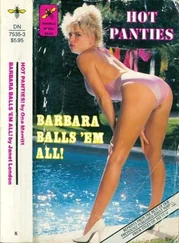By looking at Department of Housing and Urban Development grants designed to combat economic blight and help "distressed" cities, researchers found that there was no evidence that these factors had any real effect on how the HUD grants were awarded. The decisions were instead based on political influence, by bureaucrats rewarding friends. 32
Has anything really changed since George Washington Plunkitt's day? The methods, techniques, and tools are similar. But while Tammany Hall corruption controlled a city, today's crony capitalism is about a system that operates at the highest levels of an entire nation.
There is a lot of money sloshing around in the nation's capital. As of 2010, seven of the ten richest counties in the United States were in the Washington, D.C., area. During the Great Recession of 2008–2009, Washington boasted the best-performing real estate market in the country. What is it that drives the D.C. economy? Not private enterprise, certainly. And we can only expect these trends to continue, unless we make changes. 33
The upper tiers of the U.S. economy are increasingly a network of individuals who make special deals with politicians—and the politicians themselves. The distinction between the public and private sectors has become blurred. More than half of the Fortune 1000 companies have an ex-politician or ex-bureaucrat sitting on their corporate boards.
Before plunging into the specifics and key offenders of modern crony capitalism, we need to ask: How is this possible, and why does our system of laws allow all this to happen? As you will see, the answer isn't simply a matter of overlooked corruption. The system of crony capitalism has powerful defenders.
The bank robber Willie Sutton was once asked why he robbed banks. His well-known response: "Because that's where the money is." Why has crony capitalism become so widespread? The response is the same. Let's take a look at how the crony insiders get their loot.
Part One
CONGRESSIONAL CRONIES
1. THE DRUG TRADE
OVER THE PAST half century there has been a massive web woven between the federal government and the health care industry. Whether due to special taxes, fines, regulations, subsidies, or mandates, there have been enormous sums of money at stake in governmental decision-making for health care companies—and the companies' investors. By 2007, federal government programs like Medicare, Medicaid, and others accounted for 46% of all health care spending in the United States. 1Knowing what changes might be in store for those programs, and having advance notice of details of other health care legislation, could translate into a lot of profits. For a sitting United States senator, trading stocks at the same time you are pushing and writing legislation could net you millions in capital gains.
Throughout 2009, Washington was consumed by the Patient Protection and Affordable Care Act, or what became commonly known (at least to its critics) as Obamacare. It began as a campaign promise, became a debate, and ended with horse-trading, political threats, and partisan muscle. The bill that was eventually passed by Congress and signed by President Obama was 2,500 pages long. Very few members actually knew everything that was in the bill or what it all meant. Some members had not even had a chance to read it. The health care industry and pharmaceutical companies employed thousands of lobbyists to shape the legislation. When the dust finally settled, clear winners and losers emerged. The details that determined who came out ahead and who didn't were almost always hammered out behind closed doors. A single event could cause the price of a stock to swing wildly. For example, when six senators announced on July 27, 2009, that they were going to eliminate the "public option"—a government-run insurance policy—from their version of the health care reform bill, the share prices of three major insurance companies surged by between 8% and 10% the next day. Trading stocks in such an environment could be highly profitable, especially if you knew about such events in advance.
One of those at the center of shaping the bill was Senator John Kerry of Massachusetts. Kerry, first elected to the Senate in 1984, had been a longtime advocate of health care reform. He serves as a member of the Health Subcommittee on the powerful Senate Finance Committee. The former Democratic nominee for President is a member of the wealthy Forbes family and is the beneficiary of at least four inherited trusts. In 1995, his wealth jumped dramatically when he married Teresa Heinz, the widow of Pennsylvania Senator John Heinz, heir to the Heinz family fortune. Teresa Heinz Kerry is worth hundreds of millions of dollars.
Like other very wealthy people, John Kerry is an investor. His family trusts are relatively small, worth less than $1 million, according to his 2009 financial disclosures. By themselves they could hardly sustain his lifestyle. The bulk of the Kerrys' wealth resides in a series of marital trust and commingled fund accounts. All together, these funds include significant investments in stocks of many corporations. It is his buying and selling of health care stocks during the debate over health care reform that is particularly interesting. While some have reported that the Kerrys' assets are in a blind trust, they have not been designated as such on his financial disclosure forms. 2
Contrary to public perception, the major pharmaceutical companies were in favor of Obama's health care bill. The President's new program was expected to increase the demand for prescription drugs by making health care more accessible. Big Pharma, as the companies are collectively known, decided it could not stop the bill, so it might as well try to influence its provisions. Back in 1994, when the Clinton administration (and notably Hillary Clinton) had pushed for dramatic changes in the health care system, several effective ads sponsored by the pharmaceutical industry, starring "Harry and Louise," helped defeat "Hillarycare." In 2009, Big Pharma hired the two actors again. Only this time they were fifteen years older—and they were in favor of the bill. "Well, it looks like we may finally get health care reform," said Harry, in one ad.
In July 2009, industry representatives met with key members of Congress and hashed out critical details of the new Obama bill. 3As the bill snaked its way through the House and Senate, where Kerry was actively pushing it, the Kerrys began buying stock in the drug maker Teva Pharmaceuticals as the prospects of its passage improved. In November alone they bought close to $750,000 in the company. 4
When the Kerrys first began buying shares, the stock was trading at around $50. After health care reform passed, it surged to $62. In 2010, after the reform bill was signed, the Kerrys sold some of their shares in Teva, reaping tens of thousands in capital gains. (It's unclear exactly how much because of the way the transactions are reported. Politicians are required to report ranges only—not exact dollar amounts.) And they held on to more than $1 million worth of Teva shares. All in all, health care stocks proved to be some of the Kerrys' best investments that year, in terms of return on investment.
To be sure, Senator Kerry wasn't the only congressional trader in pharmaceuticals. John Tanner of Tennessee, a member of the House Ways and Means Committee, bought up to $90,000 worth back in April 2009, when the House was approving reserve-fund budgeting for health care (part of the annual budget process). Also buying Teva were Senator Jim Webb of Virginia and Congressman Vern Buchanan of Florida. Unlike Kerry and Webb, however, Buchanan voted against the bill. Casting a vote is one thing; betting on the final tally is something else. Most members, most of the time, know full well which bills will pass before they cast their votes. Health care was such an important bill, and the Democrats had such a strong majority (even if Scott Brown's surprise election in Massachusetts denied them a supermajority of sixty votes in the Senate), that opposing members like Vern Buchanan could still place bets that the bill would eventually get to Obama's desk.
Читать дальше











